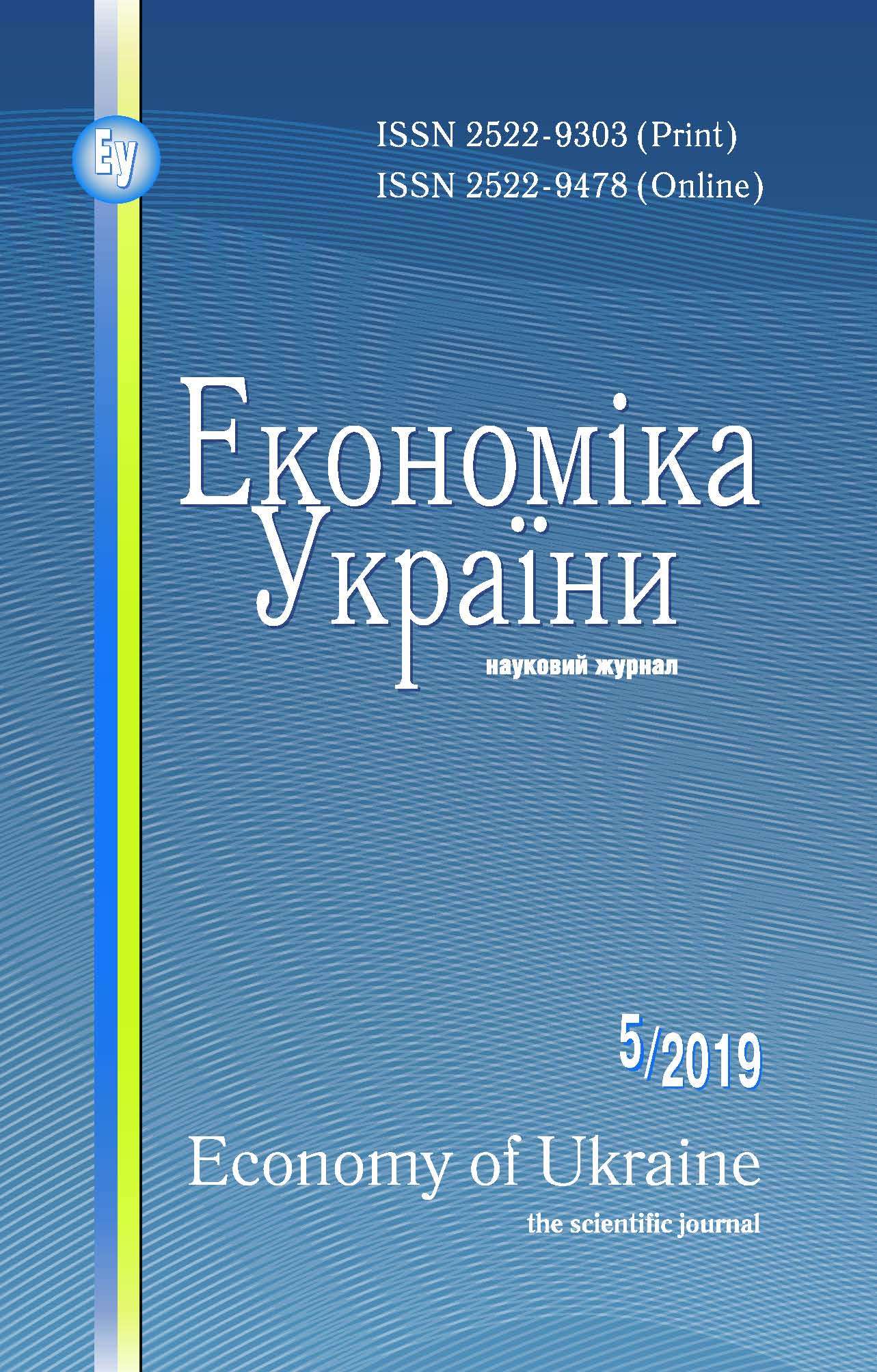"LOST IN TRANSLATION» OR EXISTING APPROACHES TO COOPERATION WITH THE IMF AND REAL OPPORTUNITIES
DOI:
https://doi.org/10.15407/economyukr.2019.05.019Keywords:
International Monetary Fund; cooperation; government; international loansAbstract
Ukraine became a member of the IMF in September 1992, shortly after the proclamation of independence in 1991. But in reality, the path to the IMF was much longer, since it began with the creation of the IMF as a specialized agency of the United Nations (taking into account that Ukraine was also the founder of the UN). During the membership period, Ukraine repeatedly turned to the International Monetary Fund for various assistance programs – both technical and financial ones. Nevertheless, in Ukraine there is a lack of understanding of the tasks and order of the functioning of the Fund (both among ordinary citizens and politicians), which requires an explanation in order to destroy certain myths on this issue.
The first of the myths is that the IMF acts as a global «shadow government» while it is actually a mutual organization in which all members (including Ukraine) could and should play an appropriate role. In this regard, the role of economic diplomacy for the establishing of relations with the IMF and with its individual members is growing significantly. At the same time, the IMF is not an «international bank», which seeks to obtain from the countries high interest rates, but rather the international «mutual fund» of solidarity, which one needs to know how to use by. At the same time, the lack of the IMF credit programs with a member country is not necessarily a bad signal for it. Many countries have successfully reformed their economies without receiving financial assistance from the IMF.
It is important to understand that the IMF does not impose its lending conditions, but takes note of the program that actually is designed (at least used to be designed) by a government of the recipient country. Finally, the IMF cooperates not only with governments of member states, but also with civil society institutions. Of course, if they are able to put pressure on their governments.
Thus, a true understanding of the rules of the IMF – which are fixed in numerous documents – could help significantly improve the effectiveness of Ukraine’s relations with the International Monetary Fund.
References
Mikesell R.F. The Bretton Woods Debates: A Memoir. Princeton, Princeton University, 1994.
Voinovich V.N. Antisovetskii Sovetskii Soyuz [Anti-Soviet Soviet Union]. Moscow, Materik, 2002 [in Russian].
James H. International Monetary Cooperation since Bretton Woods. New York, International Monetary Fund Oxford University Press, 1996.
Griffith-Jones S. The Role and Resources of the Fund. Problems of International Money. M. Posner (Ed.). Washington, D.C., IMF, 1986.
Kuznetsov V. Otnosheniya Rossii s MVF [Relations between Russia and the IMF]. Mirovaya ekonomika i mezhdunarodnye otnosheniya - World Economy and International relations, 2002, No. 7, pp. 46-52 [in Russian].
Hawrylyshyn B. Zalyshayus' ukraintsem [I remain Ukrainian]. Kyiv, Pul'sary, 2012 [in Ukrainian].
Thirkell-White B. The IMF and the Politics of Financial Globalization. Basingstoke, Palgrave Macmillan, 2005.
doi.org/10.1057/9780230514089
Downloads
Published
How to Cite
Issue
Section
License
Copyright (c) 2024 Economy of Ukraine

This work is licensed under a Creative Commons Attribution-NonCommercial-NoDerivatives 4.0 International License.



